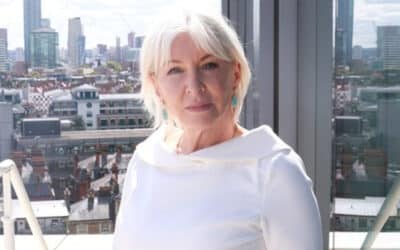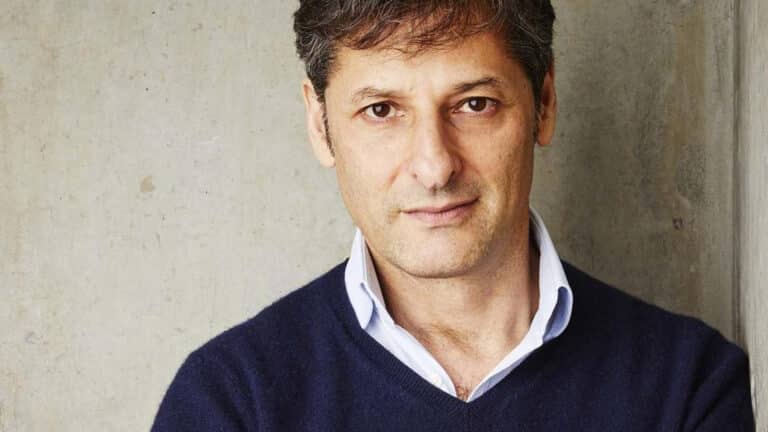Channel 4’s Chief Creative officer has warned of the consequences of privatising the channel.
In a speech to the Wales Screen Summit Ian Katz::
“If the government’s proposed sell-off of Channel 4 goes ahead without careful and comprehensive protection of its essence and character, little might seem different the day after the channel is sold.
“But little by little, a precious part of our national cultural capital could be lost. Like the proverbial frog in boiling water, we may not understand the cost until it’s too late. “
He told the audience that if a new owner chose simply meet the requirements set out in the broadcasting white paper, there could be a reduction of up to £320m of spending with independent producers and a £86m drop in out of London spending.
“[…] And since at least some of the required out of London spend would be snapped up by in house production it’s likely the impact would even greater than that.
“ It’s striking too, that the white paper includes no requirements for a new owner of Channel 4 to provide training or the kind of support for smaller companies […]”
He added:
“Of course we don’t know exactly what programming decisions a profit driven owner of Channel 4 would make and it’s important not to be a catastrophist. After all there is lots of wonderful, high quality television on purely commercial channels and platforms; I have spent much too much of my life recently watching the Morning Show on Apple TV, Yellowjackets and Landscapers on Sky and, OK, Love Island on ITV.
“And of course we don’t yet know what protection of the Channel 4 remit will be included in the media bill if and when it passes through both houses of parliament.
“ But based on what we have seen in the white paper, I think it’s possible to look at some of the most distinctive shows Channel 4 makes and take an educated guess about whether they would appear on a purely profit driven channel. “
He said that comedy output, such as Derry Girls and We Are Lady Parts would not have have been commissioned by a commercial channel.
“Take a look at ITV and Channel 5; how much original British comedy do you see on those channels? It’s not surprising the answer is ‘almost none’ because only a tiny proportion of comedies find their way to a large enough audience to be profitable. If the business you are in is business, then comedy is not good business. Or, you might say, a privatised Channel 4 is just not funny.
“Going back to those BAFTAs, consider Mo Gilligan, who won the award for Best Comedy Entertainment Programme for his Lateish Show. Would Mo have been given his own show on a purely commercial channel? Back in 2019 when the show launched Mo had appeared only on social media and as a co-host on another, relatively niche Channel 4 program, The Big Narstie Show. As Mo put it in his BAFTA acceptance speech: ‘I was going to all these meetings and people would say you’re really good but we don’t really know what to do with you and they trusted me and let me be myself.’”
He added that Channel 4 was crucial for developing new talent, which would later appear on commercial channels and streaming platforms.
“What is their approach to talent development? Waiting. Waiting for Channel 4 and BBC 3 to find and develop new talent and projects and then putting them on air when we have figured out which ones are any good.
“I can’t blame them; R+D is an expensive function in any business, and why would you spend money on it if you didn’t have to? If you didn’t have to because that was one of the core reasons for your existence. “
Katz picked examples of Northern dramas It’s a Sin, Ackley Bridge and Help:
“How many commercial broadcasters, how many international streamers, would have greenlit a drama about the impact of Covid on a Liverpool care home? I know Jack Thorne’s answer.
“And the same answer, I’m pretty sure, would apply to many of Channel 4’s most powerful dramas of the last few years: It’s a Sin, Help, Ackley Bridge, Shane Meadows’s Virtues, Adult Material, Lucy Kirkwood’s darkly comic exploration of the porn industry. In a couple of weeks we’ll be airing Peter Kosminsky’s brilliant and eerily timely cyber-warfare drama Undeclared War which, by the way stars Simon Pegg, who like so many great British talents began their career on Channel 4. After watching the impact of commercial pressures on British broadcasters for decades Kosminsky is certain that a profit driven channel would not have made any of his Channel 4 dramas from The Government Inspector to Undeclared War.
“Or consider a very different part of our output: the channel’s deep commitment to covering the Paralympics, a commitment that has transformed the profile of paralympic sport, and arguably transformed Britain’s attitudes to disability. Would a profit driven Channel 4 rip up its schedules to air over 1,300 hours of the next Paralympics at a significant loss? I don’t think anyone in the world of Paralympic sport would bet on it.”
Channel 4 will soon be the first British network to regularly co-present its main news operation from 2 locations, as it starts broadcasts from Leeds.
“So what would the future for Channel 4 News look like on a privatised channel? Let’s not dwell on the Secretary of State’s observation before the DCMS select committee that Channel 4 News ‘didn’t do themselves any favours’ since the government has repeatedly assured us that there is no element of political score-settling behind its push for privatisation. The government has also stated that Channel 4’s news provision will be protected by the licence requirements imposed on its new owner.
“But we should be clear about two things. The first is that the Secretary of State has suggested that licence requirements may only apply to a new owner of Channel 4 for a period of 10 years. 10 years is not a long time: we are currently just six years from finding out if Sky News will survive the end of Comcast’s contractual commitments to funding it.
“The second, is that whatever requirements are imposed on a new owner to deliver a certain number of hours of news in a certain part of the schedule, it is almost impossible to prescribe the delivery of the sort of programme that is produced now. Could a profit driven Channel 4 make more money by dialling down on expensive foreign news coverage, scaling back on investigations, retreating from a second studio in Leeds, making fewer films, employing fewer reporters? Of course it could.
“So whether it’s a few years down the line, or in subtle and corrosive ways sooner than that, it is very likely that a privatised Channel 4 would deliver a different kind of news program to the one we air now. “
Katz concluded:
“Britain’s public service broadcasting architecture is a complex and finely balanced ecosystem of plural voices. Few outside the industry – and even in it – have a firm grasp of it, and it’s hard to precisely predict the consequences of tinkering with bits of it. Of potentially muting one of those voices.
“That is why over the coming months it is vital that the government’s plans to privatise Channel 4 are rigorously scrutinised by MPs and peers on all sides.
Parliamentarians have to fully understand the hole in British life that would be left if it is sold off, and especially if it is sold off without cast-iron protections in place for the role it plays in supporting our creative economy, in levelling up, in representing all of Britain, in driving innovation, in promoting informed, critical thinking and intelligent, open debate.”











